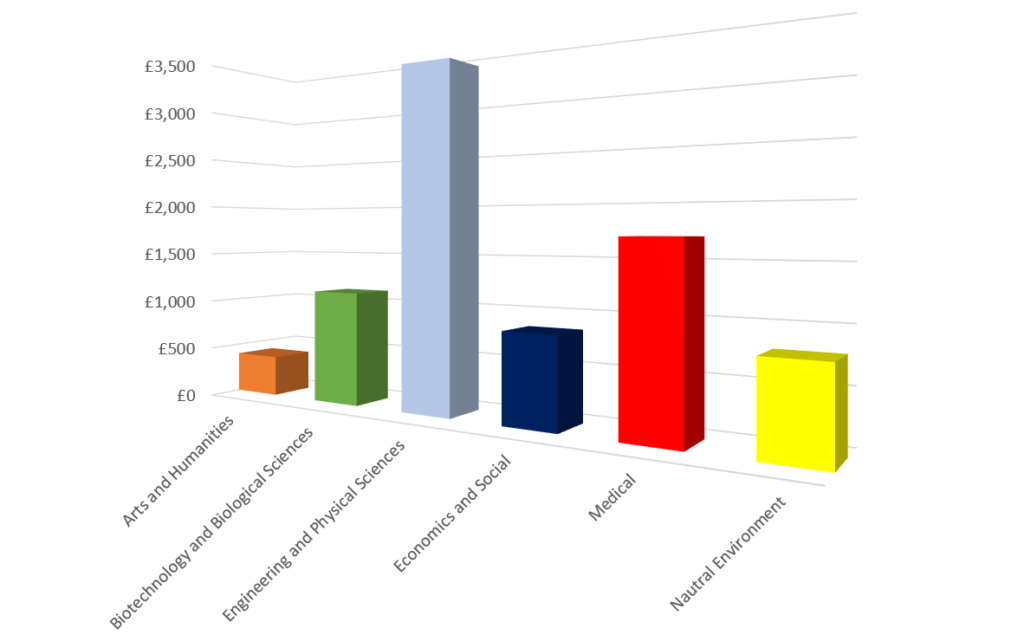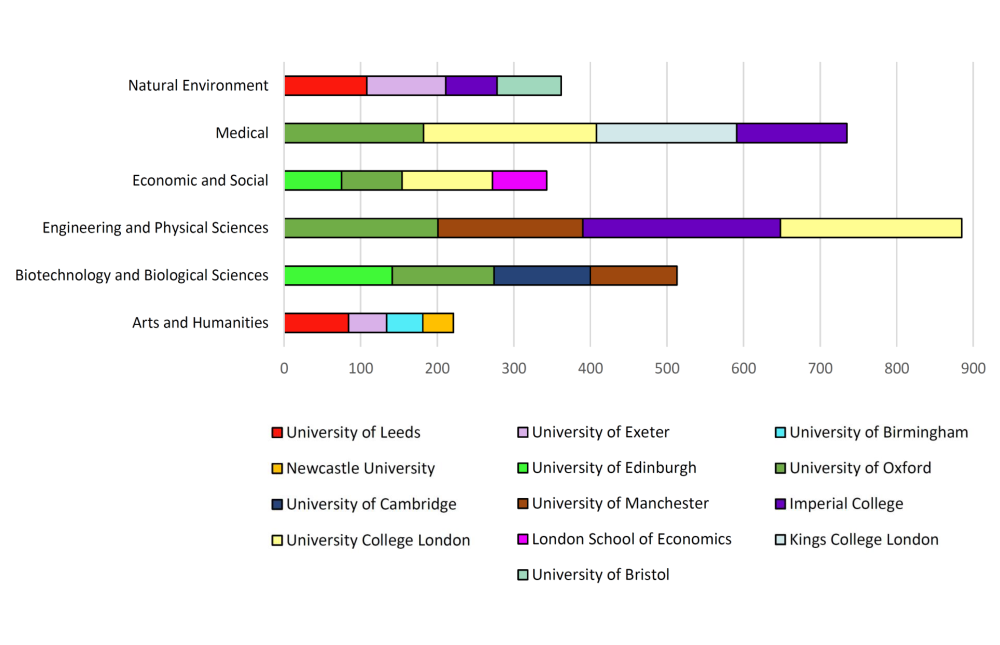- ...
Masters Compare - Find your perfect masters course.

This guide is aimed to give you a sense of what PhD subjects attract UKRI funding, and therefore your chances of finding a PhD studentship relevant to you.
One of the most exciting aspects about doing a PhD is that you are creating new knowledge - something that was unknown to the world before. Research and innovation play a crucial role improving lives and prosperity through the knowledge created. As such, the Government invests heavily in it; to the tune of 1.7% GDP or £558 per head in 2018.
Investing in talented future researchers is therefore critical to ensure that the UK continues its strength as a world leader in research and innovation. As a result, UKRI supports around 20% of all UK-based postgraduate researchers through funding and support in the form of PhD studentships.
In short, a funding package covering money towards your tuition fees and a ‘stipend’; like a grant or small salary to cover your living costs for each year of your PhD.
Current UKRI Stipend Rates (from October 1, 2025)
Minimum stipend £20,780
Stipend with London weighting £22,780
UKRI-funded doctoral students may also be able to access additional funding, for example to cover the cost of training and development or a disabled students allowance.
Several research councils make up UKRI, each specialising in different subject areas. These research councils then advertise funding to universities and other research organisations for specific research purposes. Often universities pool their expertise in specific disciplines to create economies of scale in expertise and facilities.
This enables them to put forward stronger funding bids. These groupings - called Doctoral Training Partnerships or Centres for Doctoral Training - will then seek first-class PhD students through their funded research pot to join them with their research aims.
You’ll always apply to the university or training centre - the research councils don’t offer PhD studentships directly.

PhD's are advertised on Postgraduate Studentships as they are shared with us. However, it may also be helpful to know which universities receive the greatest number of research funding awards by research council. That way you can pinpoint which universities are more likely to offer studentships in your research area of interest:

From 2021/22 international students were added, but limits were applied in 2023.
If you are an international student, there are a couple of factors to make you aware of. Currently, only 30% of PhD studentships can be awarded to international students. This 30% includes EU students. Secondly, you’ll also need to consider how you’ll fund the additional tuition fees, as often these are higher than the rate paid by UK students – and the value paid by your studentship annually.
If you’d like to find out more about what PhD subjects attract UKRI funding and stipends and to which universities, their website provides all the data. We’d recommend keeping your eye closely on Postgraduate Studentships and your relevant university websites from Winter through to Spring, as this is when the majority of PhD studentships are advertised for start the following academic year. And remember to join our mailing list for the latest advice and opportunities.